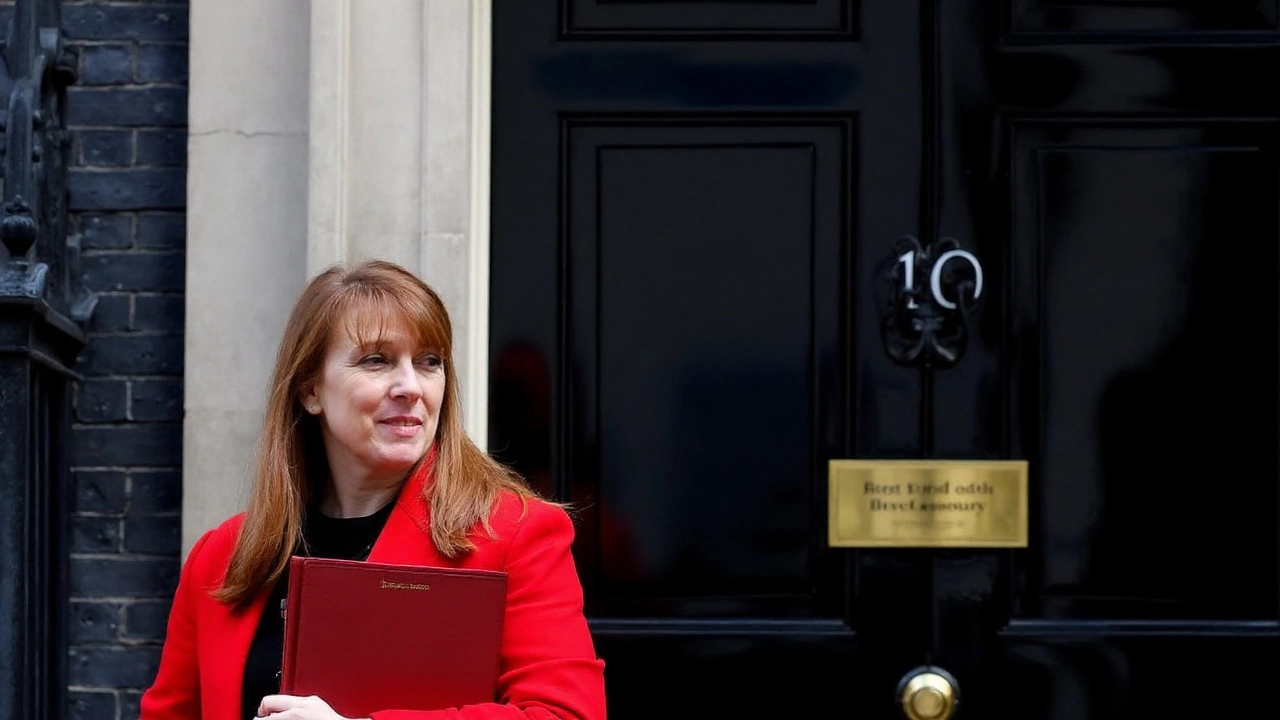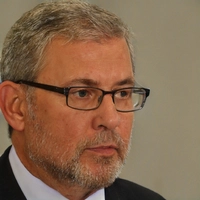What triggered the shake-up
A deputy prime minister has gone over a tax mistake, the foreign secretary has been shifted across Whitehall, and two senior figures have left government. That’s the scale of the Keir Starmer cabinet reshuffle that kicked in after Angela Rayner quit.
Rayner resigned as deputy prime minister, housing secretary, and deputy leader of the Labour Party after the government’s standards adviser, Sir Laurie Magnus, ruled she breached the ministerial code over a stamp duty issue. She paid the standard rate when she bought a flat in Hove, East Sussex, in May, after advice that it counted as her only home because the family house in Ashton-under-Lyne was held by a trust for her disabled son. Later checks showed she should have paid more, triggering the breach finding and a resignation she said was hers, not forced.
On paper this is about a tax classification. In practice, it’s about trust. The ministerial code is blunt: even inadvertent errors can cross the line if they undermine integrity or transparency. Recent history shows how quickly tax issues become political flashpoints, and Rayner’s case was always going to be judged against that standard.
Downing Street moved fast to steady nerves. The first signal was continuity where the markets care most. Chancellor Rachel Reeves stays in post. That message landed before the rest of the moves were rolled out, a clear attempt to avoid any hint of fiscal drift while the political plates were spinning.
The prime minister has long said he prefers stability to constant tinkering. He views big reshuffles as disruptive to delivery. But once the deputy PM went, gaps opened across the heart of government: housing, the deputy premiership, and—because of the move that followed—the Foreign Office. The result: a broader reset than Starmer planned at this stage of his term, and one he now has to own.

Who's in, who's out — and why it matters
The headline move is David Lammy’s switch. He leaves the Foreign Office to become justice secretary and deputy prime minister. It’s a striking pivot. Lammy has spent the past year working the global circuit, including contact with Donald Trump and his running mate JD Vance. Starmer had promised as recently as November that Lammy would stay foreign secretary for the entire parliament. That’s now off, and allies admit it’s a sharp course correction.
Why Lammy for justice? He trained as a lawyer and has spent years arguing about rights, sentencing, and rehabilitation. The Ministry of Justice is facing the toughest in-tray in Whitehall: a courts backlog still clogging the system, prisons at strain, legal aid pressure, and the constant tug-of-war between public safety and reform. Making Lammy deputy PM doubles down on delivery—he can coordinate across departments while wrestling justice policy into shape.
But moving him leaves a big question at the Foreign Office. Diplomatic relationships don’t pause, and the person stepping in will need to pick up everything from Europe and Ukraine to trade diplomacy and the Middle East. That appointment will say a lot about Starmer’s international posture in year one: continuity operator or a fresh strategic voice. Downing Street says further announcements are coming.
Two departures are already set. Ian Murray is out as Scotland secretary. That’s notable because Murray has been a bridge figure for Labour in Scotland for years, through lean times and recovery. With a general election behind us and a new policy phase ahead, removing him reshapes the government’s Scotland operation just as relations with Holyrood need careful handling on funding, energy, and public service reform.
Lucy Powell is also leaving government after serving as leader of the House. Powell has been one of the voices pushing procedural reform and parliamentary modernisation. Her exit means the government needs a new operator to manage the Commons timetable and the legislative pipeline—no small job with a heavy session ahead.
Here’s the simple breakdown so far:
- Stays: Rachel Reeves, chancellor. Signal to markets: no change on fiscal policy or budget timelines.
- Moves: David Lammy, from foreign secretary to justice secretary and deputy prime minister.
- Out: Ian Murray, Scotland secretary; Lucy Powell, leader of the House.
- Vacancies/To be confirmed: Foreign secretary; replacements for housing and leader of the House; a new Scotland secretary.
What about housing? That was Rayner’s policy home, and it’s central to Labour’s mission. Whoever takes it inherits a crowded agenda: planning reform, housing targets, squeezing more supply out of a tight construction market, and striking deals with local leaders. The politics are tough—backbench pressure on development, local objections, and the balance between renters and first-time buyers. The operational ask is even tougher: get shovels in the ground and show progress fast.
The internal politics matter too. Rayner also resigned as deputy leader of the Labour Party—an elected role. That opens a party contest. The National Executive Committee will set the timetable and rules, but it means weeks of campaigning, hustings, and attention that isn’t on policy delivery. Expect the leader’s office to push for a quick, orderly race to limit the distraction.
There’s another layer here: the optics of Starmer’s promise on Lammy. Assurances given in November now collide with the reality of government. Voters don’t tend to track every reshuffle pledge, but Westminster does. Diplomats do. Breaking that line will raise questions about stability at the Foreign Office until a new foreign secretary is bedded in.
Markets, meanwhile, were always going to be a silent audience for this reshuffle. With Reeves locked in, the fiscal stance stays predictable: tight spending, an eye on debt, and no sudden lurches. The bigger policy shifts—justice and housing—don’t hit the deficit in the short term, but they do require money and management to deliver. Starmer’s calculation is clear: organise the team now, then drive results before voters lose patience.
What should we watch next?
- The Foreign Office pick: continuity diplomat vs. heavyweight domestic figure sent abroad. It signals UK posture for the next two years.
- Housing secretary: someone willing to take political heat on planning, not just warm words.
- Scotland: a secretary who can reset tone with Holyrood while landing practical deals.
- Commons management: a leader of the House who can keep a thick legislative agenda on time.
The justice brief will draw the sharpest scrutiny. Sentencing policy remains politically sensitive. Prison capacity and alternatives to custody will test the new secretary immediately. On courts, clearing the backlog means sustained funding, more judges sitting, and operational fixes that outlast headlines. None of this is glamorous, but it’s the grind that determines whether crime policy looks serious or performative.
Foreign policy continuity is the other test. Allies want predictability. Business wants clarity on trade and investment policy. A quick, credible appointment at the Foreign Office will help quiet any noise about churn. Anything that looks like a prolonged vacancy will feed questions about focus.
Inside No. 10, there’s also the delivery question. Starmer hates churn because it burns time—new ministers, new private offices, new priorities. This reshuffle breaks that rule, but only because events forced it. The bet is that a tighter, rebalanced top team will be faster in the medium term than a patched cabinet with gaps at the top.
As for Rayner, her exit leaves a hole in tone as much as headcount. She has been the government’s most recognisable voice after the PM and chancellor—plain-spoken, combative, and a useful foil for Conservative attacks. Even if she remains an MP, she won’t be daily on the front bench. That changes the sound and feel of this government in Parliament and on air.
One more thing to note about the standards process. Sir Laurie Magnus’s role is advisory: he investigates, tests evidence, and reports. Prime ministers make the calls. By choosing to accept the finding and allowing a major reshuffle to flow from it, Starmer doubles down on the line he drew in opposition about standards in public life. The cost is obvious: he loses his deputy and triggers a cascade of changes. The benefit is equally clear: he avoids the slow bleed of a standards row dragging on for months.
The reshuffle is still moving. More names are coming. The shape of the government will be clearer by the end of the week. For now, the signal is this: steady on the economy, tougher on justice delivery, and a reset at the top that Starmer didn’t plan—but now has to make work.
